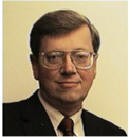System Maintenance occurs every Friday.
Code Division Multiple Access (CDMA) is an increasingly popular method for handling higher volumes of calls. This spread spectrum technique is resistant to inference and jamming, provides for more calls to be made on a single frequency, allows for frequency reuse, and permits soft handoffs. Evolution Data Optimized, or Evolution Data Only (EV-DO) is designed as an evolution of the CDMA 2000 standard that supports higher bandwidths, enabling a wider range of wireless data services.
Both the CDMA and EV-DO standards require an in-depth understanding for engineers to correctly and efficiently implement them. Our 3-day CDMA and EV-DO Technology course offers an in-depth look into the technology, standard, algorithms, and issues associated with the two wireless standards. We emphasize the basics surrounding each standard and delve into the current issues related to manufacturing next-generation devices.
$1,695
Add To Shopping Cart
Please note: If you or your company plan to pay by wire transfer, you will be charged a wire transfer fee of USD 45.00.
Please email the printable registration form for public courses to us at the email address on the form to complete your order.
If you have any questions concerning this course, please contact us at info@semitracks.com.
If a course is canceled, refunds are limited to course registration fees. Registration within 21 days of the course is subject to $100 surcharge.
Semitracks' CDMA and EV-DO Technology course introduces the high data rate 1xEV-DO technology. By focusing on the basics of the technologies and the issues surrounding them, participants will learn how to optimize performance and efficiently implement the standards in a wireless network.
This course is appropriate for engineers and technicians in equipment manufacturers designing 1xEV-DO products and network operators building and optimizing 1xEV-DO networks. Our instructors work hard to explain the standards without delving heavily into the complex computer science algorithms that normally accompany this discipline.
Our courses are dynamic. We use a combination of instruction by lecture, problem solving, experimentation with CDMA/EV-DO equipment, and question/answer sessions to give you the tools you need to excel in the failure analysis process. From the very first moments of the seminar until the last sentence of the training, the driving instructional factor is application. The course handouts offer hundreds of pages of reference material that the participants can apply during their daily activities.
Our instructors are internationally recognized experts. Our instructors have years of current and relevant experience in their fields. They're focused on answering your questions and teaching you what you need to know.

Scott Baxter received his B.S. in Electrical Engineering from Vanderbilt University in 1976. He has 30 years of experience in wireless technology and is the President and owner of Scott Baxter and Associates, located in Nashville, Tennessee. His clients include national and international wireless operators, network manufacturers, handset manufacturers, test equipment manufacturers, and expert testimony in US Federal and State courts.
Since 1996, Scott has trained more than 3,000 engineers and technicians in companies including virtually all the US CDMA/EVDO operators: Verizon, Sprint, Alltel, US Cellular, Cricket/Leap Wireless, MetroPCS, Revol, Telstra (Australia), Pelephone (Israel), Telus (Canada), Bell Mobility (Canada), Hutcheson (Thailand), Reliance (India), People Net (Ukraine), manufacturers Nortel, Motorola, Agilent, Andrew, ZKcelltest, Anritsu, and several defense contractors. Scott is involved with several conferences involving CDMA and wireless technologies, and RF engineering.